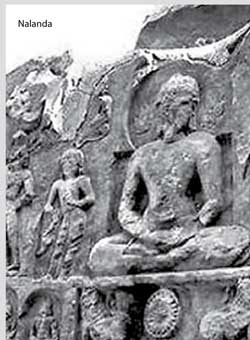Reply To:
Name - Reply Comment
Last Updated : 2024-04-26 22:10:00
.jpg) Some reflections on Latheef Farooq’s thoughts
Some reflections on Latheef Farooq’s thoughts
My mind started debating with itself after reading the thought provoking piece by our senior and most respected colleague Latheef Farooq that referred in detail to my previous column in the Daily Mirror on the harmony between Sinhala Buddhists and Muslims.
In fact two particular recent incidents, specifically from the Sinhala Buddhist side, prompted me to add these thoughts to the deliberation with Mr. Latheef.
Before getting into those two incidents let me comment on some particular points of Mr. Latheef.
He has correctly detailed the historical background to the issue, but should we repeat this over and over again? We are very well aware of the fact that the racist political leaders are responsible for the ethno-religious tension in this country that galvanised into a fully-fledged war between two ethnic communities (Though someone could argue otherwise claiming that it was not an ethnic war, my explanation would be totally different).
I honestly think that we should stop this blame game and strategically think of the future searching for ways and means to rectify the situation since continuation of these accusations would not bring any result, rather deepen the mistrust through an unpleasant debate. Of course, we should not forget it as the lessons from the past should be the foundation for future.
I mostly like his critical analysis on the role of the religious leaders. The two incidents that I was referring to were, in fact, the role of these religious representatives who had immense power in shaping the minds of their blind followers. These two incidents depict two different aspects of the Sinhala Buddhist mindset on ethnic reconciliation.
One incident happened in the historic university of Nalanda in the State of Bihar in India early this week when a group of Sri Lankan Buddhists visited the site.
A Sri Lankan Buddhist monk, who was residing in that area was explaining the historical value of the former educational cum monastery complex, but slowly crossed the limit and started stereotype rhetoric against the Muslims referring to the devastating attack by the Turkish leader Bakhtiyar Khilji in 1193 that caused a major setback to Buddhism in India.
While alarming the Sinhala Buddhist listeners about alleged threats from the ‘over-populated’ Muslims, the monk was referring to a series of doctored statistics, which were far beyond reality.
The Sinhalese will soon become a minority in Sri Lanka, he warned them with some hypothetical numbers. The usual rhetoric against Muslim businesses was repeated requesting them not to step into those shops.
 He wanted the devotees to carry this message to their villages and spread it among the peers. A few of us felt extensively uncomfortable but the average rural pilgrimages were nodding to this ‘Preaching.’ Rapid expansion of population is a common global allegation against Muslims.
He wanted the devotees to carry this message to their villages and spread it among the peers. A few of us felt extensively uncomfortable but the average rural pilgrimages were nodding to this ‘Preaching.’ Rapid expansion of population is a common global allegation against Muslims.
Nonetheless, so called visible expansion of families does not reflect in the official census and statistics, at least in the Sri Lankan context.
According to a media report published in The Island on March 18, 2013 Director, Population Census and Demography Division of the Department of Census and Statistics, Indu Bandara has stated that the Sinhala and Muslim populations had increased at the rate of 1.04 and 1.87 per cent respectively between 1981 and 2012, but it was not a threat to Sinhala people contrary to claims being made in some quarters to that effect.
The 66 percent of Sinhalese in 1881 has reached 74.9 percent by 2012 according to the department – probably nearly an eight percent increase, while Muslims have grown by 2.5 percent during the same period.
But I don’t think Sinhalese or any other non-Muslim community is mentally prepared to accept these scientific statistics. They would argue citing the number of members in a Muslim family they know comparing to their own.These allegations are predominantly based on mistrust and lack of understanding. Have we attempted at least to provide the true picture of these allegations from our own respective sides?
The simple answer is No.
 We always stick to a blame game and confine ourselves to criticising our opportunistic politicians and stop there. But again I admire Mr. Farooq’s brave words against his own religious leadership in this regard.
We always stick to a blame game and confine ourselves to criticising our opportunistic politicians and stop there. But again I admire Mr. Farooq’s brave words against his own religious leadership in this regard.
The other reference I wanted to make is a statement published in the Sunday Times last week by Most Venerable Thirikunamale Ananda Maha Nayaka Thera of the Sri Dharmarakshita Chapter of Amarapura Nikaya.
The well learned Chief Priest highlighted the urgent need of building reconciliation bridges among different ethnic communities in the country parallel to the economic development.
His thoughts were total opposite to those of the monk I met in Nalanda – a clear reflection of a true son of The Buddha with a deep understanding on the issue.
Hailing from Trincomalee and still a frequent visitor to the area to look after his ailing mother, the Maha Nayaka Thera possesses a sound knowledge on the dynamics of the highly complex nature of the eastern region.
Most importantly his remarks are further vital as he belongs to a strong Sinhala Buddhist sector in different aspects. Ananda Maha Nayaka Thera is a leading figure of the Sinhala language advocacy group Hela Howula initiated by Cumaratunga Munidasa. Furthermore, he is a contemporary and a Sasana-brother of the late Gangodawila Soma Thera, who at his late stage became controversial due to his nationalistic ideologies. I happened to be a student of both these monks – Soma Thera and later Ananda Maha Nayaka Thera.
Thus, the comments of Ananda Maha Nayaka Thera should be considered as deriving from the strong Sinhala Buddhist schools of thought.
Highlighting the role of religious leaders in building ethno-religious harmony in the east, the Maha Nayaka Thera focuses on five points in his statement.
The first is the unequal distribution of development that fuels ethnic mistrust among communities and affects the reconciliation process. We are aware of the ulterior motives of the development projects in the east, mainly in the coastal belt since the war ended in 2009.
Personal commercial gains over-rode the regional and geo-political priorities depriving the needs of the people. Some leading politicians of the day made colossal benefits out of these development projects.
The second point that the Maha Nayaka Thera points out is the presence of political groups, who are undermining the reconciliation process at the expense of their own political gains.
I am sure these political groups he was referring to were predominantly ethnic based ones. Then he talks about the language issue arguing the fact that the people of the area should be able to communicate with their governing systems in their own language, an issue that had fuelled the country’s ethnic conflict as well.
The argument he was raising on the foreign funded radical religious groups has become a concern even for moderate Muslims all over the world.
As they criticise the West and Israel against their hidden agendas (Predominantly on the Palestine issue), the moderate Muslims should equally bother about these foreign funding agencies (Or sometime countries) as well as their radical beneficiaries. The Sinhala Buddhists would generalise those radicals as average Muslims, and thus misunderstand and mistrust may develop. To my mind moderates from both communities should be mobilised in addressing radicalism in both sides.
The then State sponsored Sinhala Buddhist radicalism (I do not buy the claim that those elements were sponsored by Norway as claimed by Mr. Farooq) are now being dealt under the law of the land, but I have no idea as to how the State could deal with Muslim radicalism which is an undeniable global phenomenon.
The last point that the Maha Nayaka Thera was referring to was the protection of the Buddhist archaeological sites in the East, a point of serious concern that could spark ethno-religious tension within seconds. The government, basically the Archaeological Department needs to intervene and resolve this issue with solid alternatives to the new settlers before those concerns develop into flares of ethno-religious hatred.
Nevertheless, as the Maha Nayaka Thera pointed out, this could not be the sole responsibility of the Government in power or the politicians. Religious leaders and civil society should join hands in taking the first step, he says - true colours of a courageous Buddhist leader.
In fact, the Maha Nayaka Thera has displayed his willingness to take the leadership in such a process, a timely move by a Sinhala Buddhist religious leader.
We know of many such Buddhist clergy who would join this effort. What we need is a similar leadership from other religious leaders, mainly the Muslims and Tamils. I think the Church is already there.
As Mr. Farooq strongly argued the Muslim religious leadership should be united and strengthened if we are to succeed in this road. But it is not my prerogative to comment in that particular aspect of Muslim religious leadership.
The only claim that I can make is that we have strong Sinhala Buddhist leaders of clergy who are ready to walk on the path of reconciliation, if you do.

Add comment
Comments will be edited (grammar, spelling and slang) and authorized at the discretion of Daily Mirror online. The website also has the right not to publish selected comments.
Reply To:
Name - Reply Comment
US authorities are currently reviewing the manifest of every cargo aboard MV
On March 26, a couple arriving from Thailand was arrested with 88 live animal
According to villagers from Naula-Moragolla out of 105 families 80 can afford
Is the situation in Sri Lanka so grim that locals harbour hope that they coul